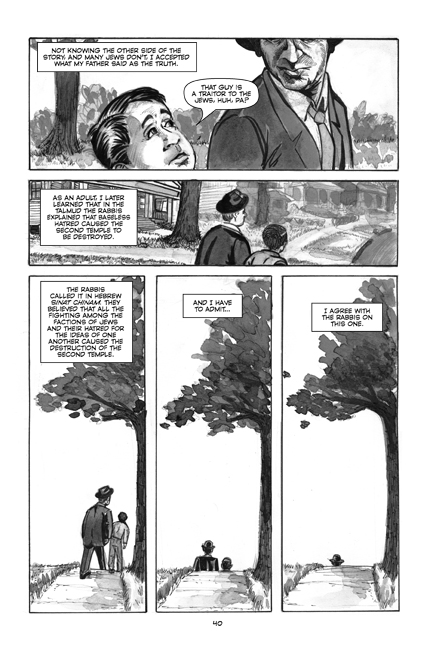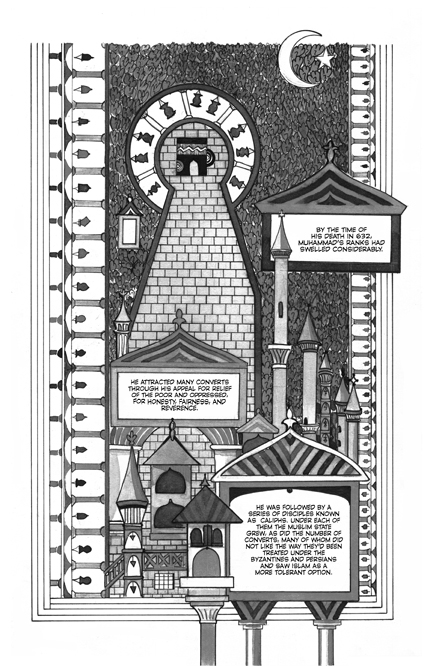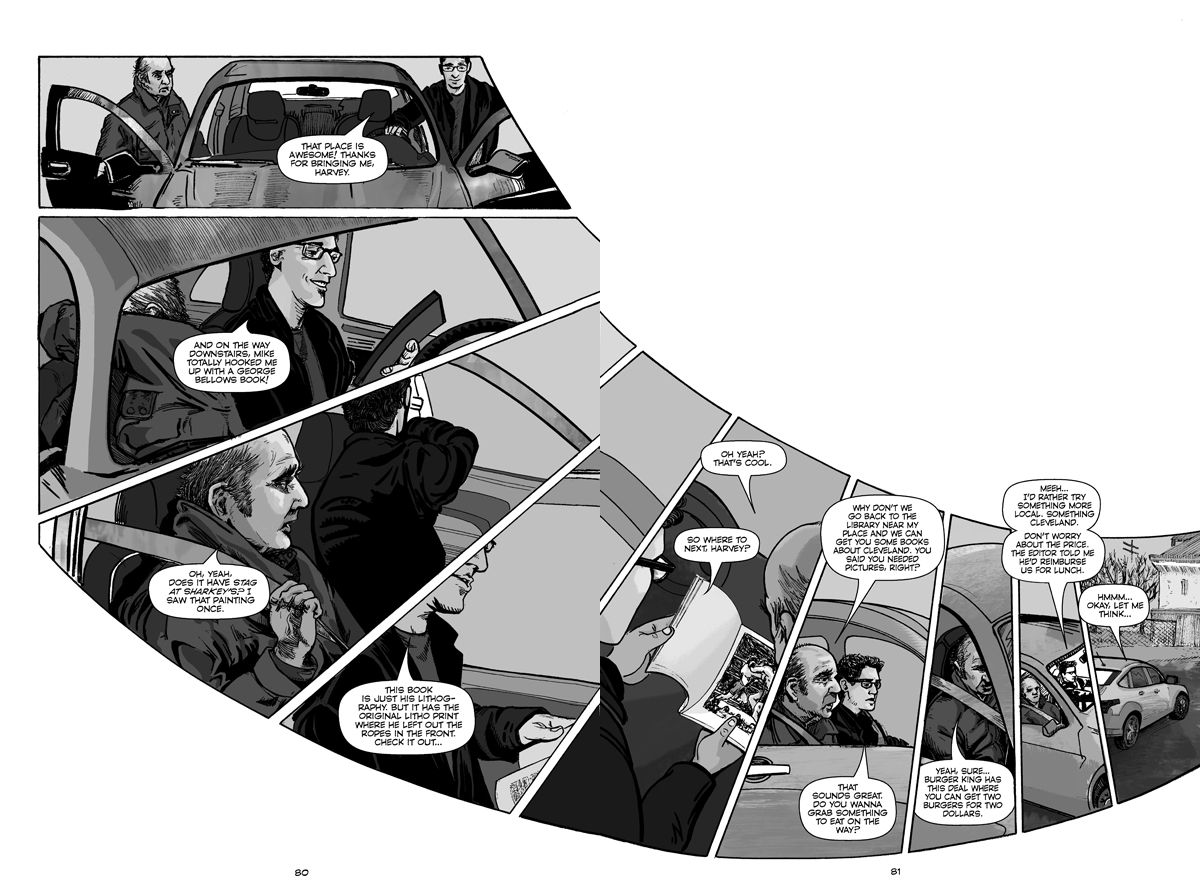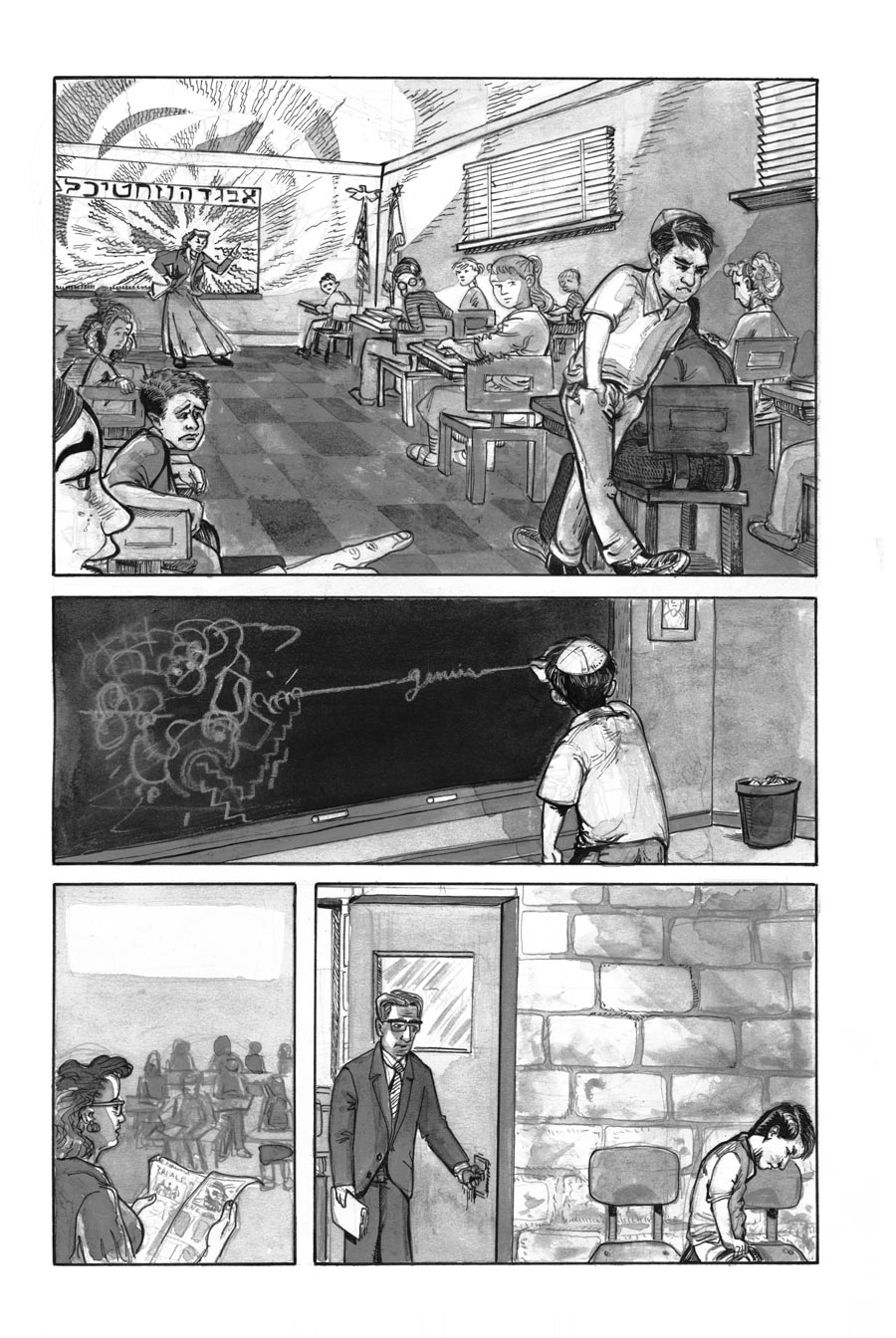

The conversational manner in which this is imparted, coupled with the constantly adaptive art of JT Waldman, delivers an easily digested and informative density.

It’s spliced with Pekar’s memories and experiences of growing up in a Jewish household during the period when the Israeli state was constructed.

The polemic of the title is largely a marketing choice as the content is, until the final fifth or so, Pekar’s wide-ranging history of the Jewish people, incorporating diversions into other cultures where required for complete understanding. How can you change the minds of people who think they’ve a deal with God that goes back thousands of years?” An early piece of dialogue sets out his stall “I hope this book will change some minds, but I dunno. That theme continues here, as Pekar, brought up in the Jewish faith, but an atheist in later years, investigates some entrenched attitudes. He supplemented his income by writing reviews encompassing a broad cultural tableau, and towards the end of his career his comics work diverged into a second strand, of historical research, beginning with Macedonia.

He was a polymath, though, and the single progressive characteristic that defines his output was a desire to learn, applied to both people and in the educational sense. A sweet and simple epilogue by Pekar’s widow, Joyce Brabner, provides the perfect capstone, noting how she planned a funeral that was properly Jewish and yet appropriately nonreligious.Harvey Pekar is best known in comics for his autobiographical social observation, mythologising the minute details of day to day life and interaction within his long-running American Splendor comic. Starting off as an unalloyed champion of the new Jewish homeland (he was a schoolboy during the War of Independence and grew up along with the young country), Pekar later becomes troubled by the growth of religious fundamentalism in Israel, West Bank settlements, and what he saw as destructive military policies. While walking through a cavernous used bookstore or grabbing food at an Italian grocery, they explore his parents’ very passionate but unusual Zionism (Pekar’s mother was a stridently nonworshipping Marxist while his father was highly religious), the history of the Jewish people and the creation of the state of Israel, and Pekar’s own evolving feelings about that country. Pekar structures his narrative as a long-running bull session with his collaborator, artist Waldman (Megillat Esther), as they amble around Pekar’s hometown of Cleveland. Instead of the single-minded polemic that the title promises, this posthumous work by Pekar functions as a multipronged exploration of religious, political, and personal histories and is all the richer for it.


 0 kommentar(er)
0 kommentar(er)
